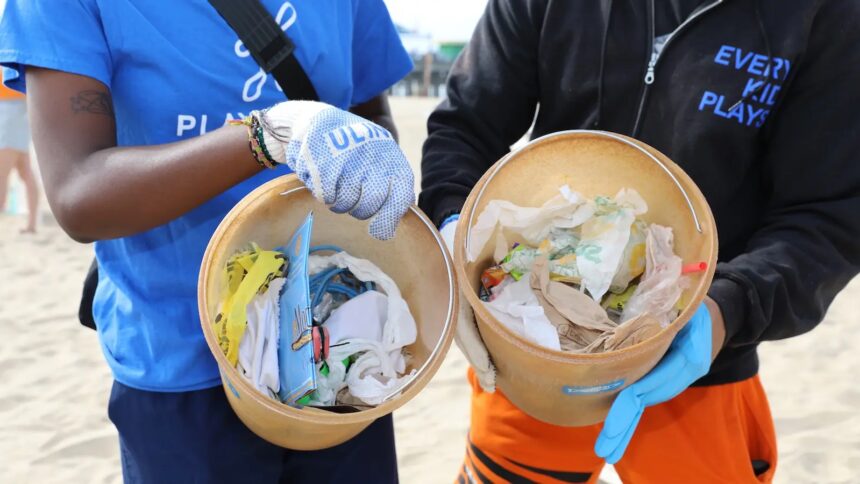A groundbreaking five-year study has revealed what environmental advocates have long suspected: plastic bag bans in Canada are making a measurable difference in reducing shoreline pollution. Researchers documenting litter along Canadian coastlines have found a significant 40% reduction in plastic bag waste in regions where bans have been implemented, providing the first comprehensive evidence that these policies deliver tangible environmental benefits.
“The data speaks volumes about the effectiveness of these bans,” explains Dr. Megan Richardson, lead researcher at the Marine Conservation Institute, who spearheaded the study. “We’ve been tracking coastal debris across 78 different shoreline locations since 2020, and the correlation between plastic bag policies and reduced waste is undeniable.”
The research team conducted systematic beach cleanups and waste audits across multiple provinces, carefully documenting the composition of collected waste. Their findings showed that municipalities with plastic bag restrictions consistently displayed lower concentrations of this particular pollutant compared to regions without such regulations.
What makes this study particularly noteworthy is its longitudinal approach. Rather than providing a mere snapshot, researchers tracked the same locations before and after ban implementations, establishing clear causal relationships between policy changes and environmental outcomes. In cities like Victoria and Montreal, where comprehensive bans have been in place longest, plastic bag pollution decreased by as much as 62%.
The timing of these findings couldn’t be more relevant as the federal government continues implementing its single-use plastic ban. Canada’s nationwide prohibition on manufacturing and importing plastic bags, straws, and takeout containers began phasing in last year, with full enforcement expected by December 2025.
“This isn’t just about plastic bags,” notes Environmental Policy Analyst Serena Wong from the Canadian Environmental Protection Agency. “The study demonstrates that targeted regulations on specific plastic items can yield measurable ecological benefits. It provides a blueprint for addressing other problematic single-use items.”
Not all findings were positive, however. The research revealed an unintended consequence in some regions: increases in paper bag waste and thicker “reusable” plastic bags, which some consumers treat as single-use items. This highlights the importance of comprehensive waste management strategies beyond simple bans.
“The substitution effect is real,” cautions retail analyst Jordan Martinez. “Simply banning one product without addressing consumption patterns can lead to alternative products causing different environmental challenges. Policy needs to consider the full lifecycle of all packaging alternatives.”
Business responses have varied across Canada’s retail landscape. While some major chains initially resisted these changes, many have since embraced more sustainable packaging options, with several developing innovative alternatives that provide both environmental benefits and cost savings.
Provincial governments across Canada have taken note of these findings. Alberta, one of the few provinces without widespread municipal bag bans, is now considering provincial legislation following this new evidence. Meanwhile, Ontario’s environment ministry has commissioned its own follow-up study examining how these bans affect various ecosystems beyond coastal areas.
The implications extend beyond Canadian politics into international environmental policy. Canada’s evidence-based approach to plastic pollution has positioned it as a leader in the global movement to address plastic waste, with several international environmental organizations citing this study in their advocacy for similar policies worldwide.
As we continue grappling with the complex challenge of plastic pollution, this research provides a moment of cautious optimism. While plastic bags represent just one facet of our broader waste crisis, their successful regulation demonstrates that targeted policy interventions can indeed create meaningful environmental change.
The question remains: will we apply these lessons to address the full spectrum of plastic pollution, or will bag bans become merely symbolic victories in a much larger environmental battle?























